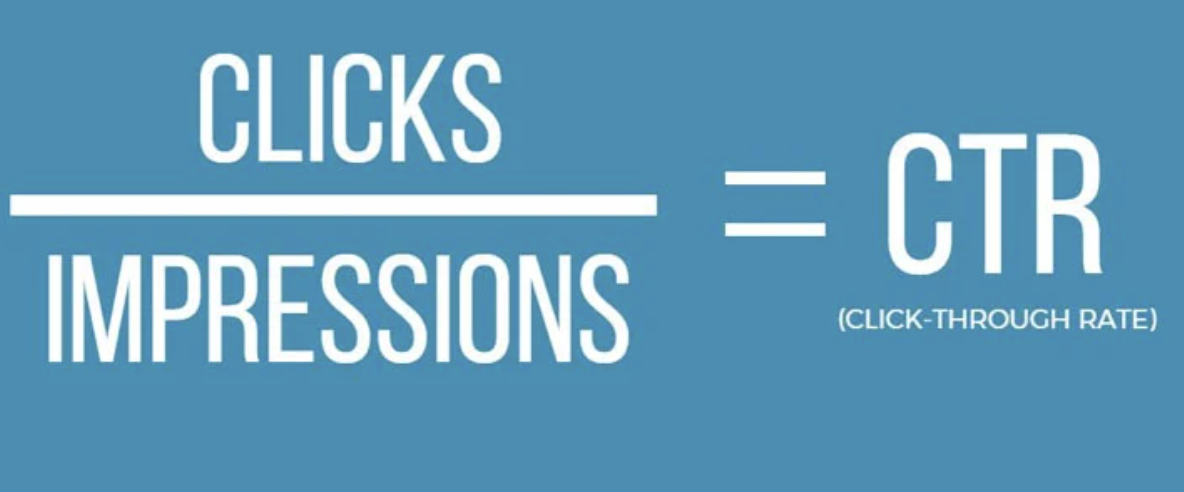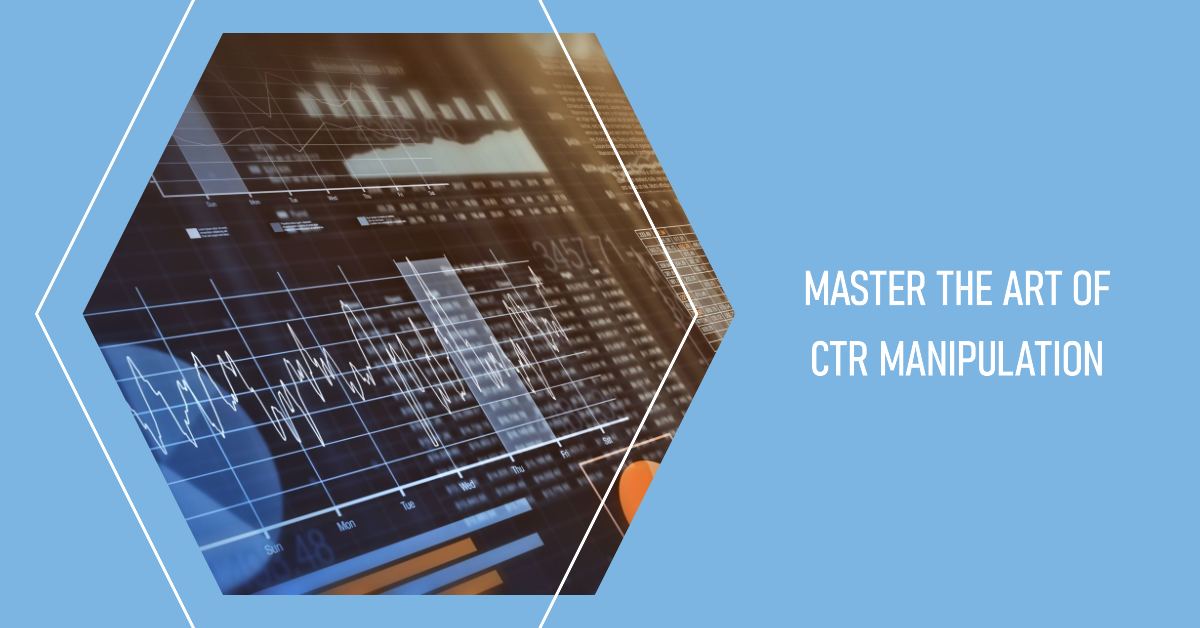LinkDaddy CTR Manipulation: Specialized Providers for Boosted Internet Web Traffic
Wiki Article
Checking Out the Relationship In Between CTR Manipulation Providers and User Actions
In the world of electronic advertising and marketing, the influence of click-through rate (CTR) manipulation services on customer actions stays a complicated and interesting subject. By studying the detailed connection in between CTR control services and user behavior, interesting insights arise that might improve our understanding of electronic marketing techniques and their results on customers.Influence of CTR Manipulation on Actions
Evaluating the influence of Click-Through Rate (CTR) control on individual behavior exposes essential insights into the dynamics of online engagement. CTR adjustment includes artificially blowing up the number of clicks on a certain link or ad to trick customers and search engines. This technique can lead to a distorted assumption of a web page's popularity or relevance, eventually impacting individual habits.
In addition, CTR control can skew the information used by algorithms to personalize individual experiences. This can lead to individuals being offered material that does not straighten with their preferences or rate of interests, ultimately bring about a decrease in individual satisfaction and engagement. Comprehending the influence of CTR control on user habits is important for maintaining openness and count on on the internet interactions.
Customer Engagement With Adjusted CTR
User engagement with adjusted CTR data frequently causes skewed assumptions of on the internet web content popularity and relevance. When customers connect with content based on synthetically filled with air Click-Through Rates (CTR), they might believe that specific info, items, or solutions are more prominent or reliable than they really are. This can cause users choosing based on misleading data, bring about potentially undesirable outcomes.Involvement metrics like sort, shares, comments, and time invested in a web page are often influenced by CTR manipulation. Customers might be extra inclined to involve with material that appears to have higher involvement prices, additionally continuing the cycle of skewed perceptions. Therefore, web content designers and advertisers may focus on generating material that generates high CTR rather than concentrating on producing genuinely valuable and pertinent product.

Emotional Results of CTR Control

Additionally, the mental results of CTR manipulation can additionally materialize in transformed decision-making processes. Individuals may be much more inclined to click material solely based upon its viewed popularity, instead than its actual value or importance to their requirements. This behavioral change can lead to a superficial engagement with on the internet content, where customers may overlook high-quality yet less preferred offerings in favor of those with artificially enhanced CTRs.
In significance, the mental ramifications of CTR control highlight the importance of keeping transparency and credibility in online communications to foster real user involvement and depend on.
Ethical Factors To Consider in CTR Manipulation
Taking into consideration the ethical ramifications of adjusting click-through rates (CTR) in on the internet platforms is essential for keeping integrity and count on within the electronic ecosystem. CTR control elevates issues regarding deceiving individuals, misshaping data analytics, and jeopardizing the credibility of on the internet web content. One major honest factor to consider is the potential influence on individual freedom and decision-making. By artificially pumping up CTR, customers may be misguided right into clicking links or ads they would certainly not have selected or else, resulting in an insincere online experience. CTR control can skew the performance metrics that organizations depend on to make critical decisions, inevitably impacting market competition and consumer count on.An additional honest element to consider is the fairness of adjusting CTR to get an unjust advantage over competitors. Involving in such techniques not just breaks principles of justice however likewise weakens the count on that users position in on the internet platforms. It is necessary for services and digital marketing professionals to support ethical criteria in their techniques to ensure openness, integrity, and long-term sustainability in the on-line atmosphere.
Implications for Digital Advertising And Marketing
With the enhancing reliance on electronic platforms for advertising and marketing functions, the practice of adjusting click-through rates (CTR) postures considerable implications for the efficiency and integrity of electronic marketing approaches. CTR control can lead to manipulated data analytics, misleading marketing experts into thinking that their campaigns browse around this web-site are executing better than they really are. This can result in misallocation of resources, with companies buying underperforming techniques based upon falsified CTRs. When customers realize that CTRs have actually been controlled, it can deteriorate count on in the brand, leading to lasting negative effects for consumer loyalty and brand name reputation.Furthermore, making use of CTR manipulation services can produce an unjust competitive landscape, where companies that participate in such practices gain a synthetic advantage over those that comply with moral advertising and marketing criteria. This can suppress technology and creative thinking in electronic advertising, as success ends up being more about manipulation tactics than delivering real worth to consumers. Eventually, the implications of CTR manipulation for electronic advertising prolong beyond temporary gains, influencing the general sustainability and credibility of advertising and marketing initiatives in the digital world.
Final Thought
In final thought, the connection between CTR adjustment solutions and individual habits is complex and complex. The effect of CTR manipulation on actions, individual interaction with manipulated CTR, psychological results, honest considerations, and effects for digital advertising and marketing all play a role in forming this connection. Understanding these characteristics is vital for marketers and scientists alike in order to browse the honest implications and maximize the effectiveness of their digital advertising strategies.Report this wiki page